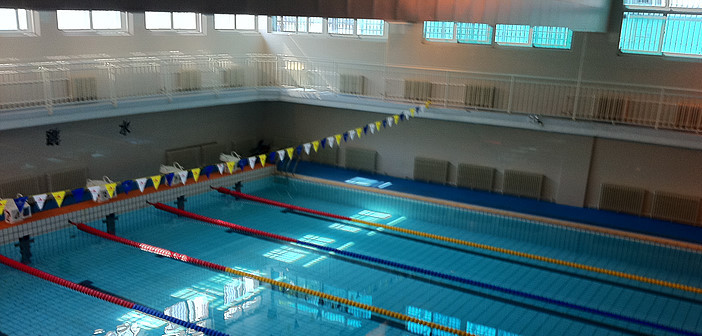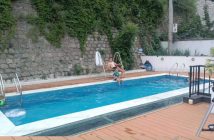The principle of mens sana in corpore sano – “a healthy mind in a healthy body” – was developed in British public schools in the 19th century, and has been widely accepted in education across the world. Now Beijing’s Tsinghua University is taking the idea a step further. Students will be required to learn to swim if they want to graduate with a bachelor’s degree.
In fact, it’s not a new rule. The requirement was in place in the early days of the university, a hundred years ago, but was dropped when the number of students became too many for the available pool space. Now it’s been reintroduced, with Liu Bo, head of the Division of Sports Science and Physical Education, explaining that “swimming is beneficial for students in the long run, since swimming is helpful in improving students’ endurance and doing less harm to joints and muscles as a water sport,” according to China Daily.
The choice of swimming as the mandatory sport is an interesting one. Despite a regular haul of Olympic medals in swimming, synchronized swimming and diving, the Chinese are widely reputed to be a nation of non-swimmers. No reliable statistics are available to establish the truth or otherwise of this perception, but recent surveys indicate that more than half of Americans can swim, and in the UK the figure is more like 80 percent. Anecdotal evidence suggests that the proportion of swimmers among Chinese adults is much lower. And on a serious note, drowning is the number one cause of death by injury among the nation’s children.
I’ve heard it suggested that this is because much of China is inland, and it’s true that Beijing is closer to outer space than it is to the sea. However there are numerous other bodies of water throughout the country. When my family and I visited Qinghai our suggestion that we might go for a swim in the largest saltwater lake in China were met with bemused incomprehension. And in Lushan, in Jiangxi province, I was proudly shown the lake where Mao Zedong used to swim during his stays. It was beautifully maintained, but there were no facilities for future leaders to take a dip.
I grew up in a city about as far from the sea as it’s possible to get on the small island of Britain, but every week at school we were marched down to our local public baths for swimming lessons. And the explanation for that 80 percent figure almost certainly lies in that public provision, developed a century ago and now of course under threat from the all-devouring beast Austerity.
The few pools which are widely accessible in Beijing are generally too packed for real swimming, and tend to be places for paddling, splashing and cooling off in the summer heat. Last summer I took my children to the Water Cube, site of the swimming events at the 2008 Olympics, redeveloped as a leisure pool. We had great fun on the slides and chutes, and the queues were relatively short, since most of the patrons were content to bob in shallow water, watching movies on a giant screen.
We went again recently, and the Cube was being converted into an ice rink, for the 2022 Winter Olympics. Maybe the Tsinghua students should not grumble about the extra requirement toward their degrees, but consider themselves privileged, for the opportunity available to them to learn a healthy – and potentially life-saving – skill.
Photo: Not in Nebraska via Wikipedia




